From Waste to Wonder — Popondetta Primary School’s Approach
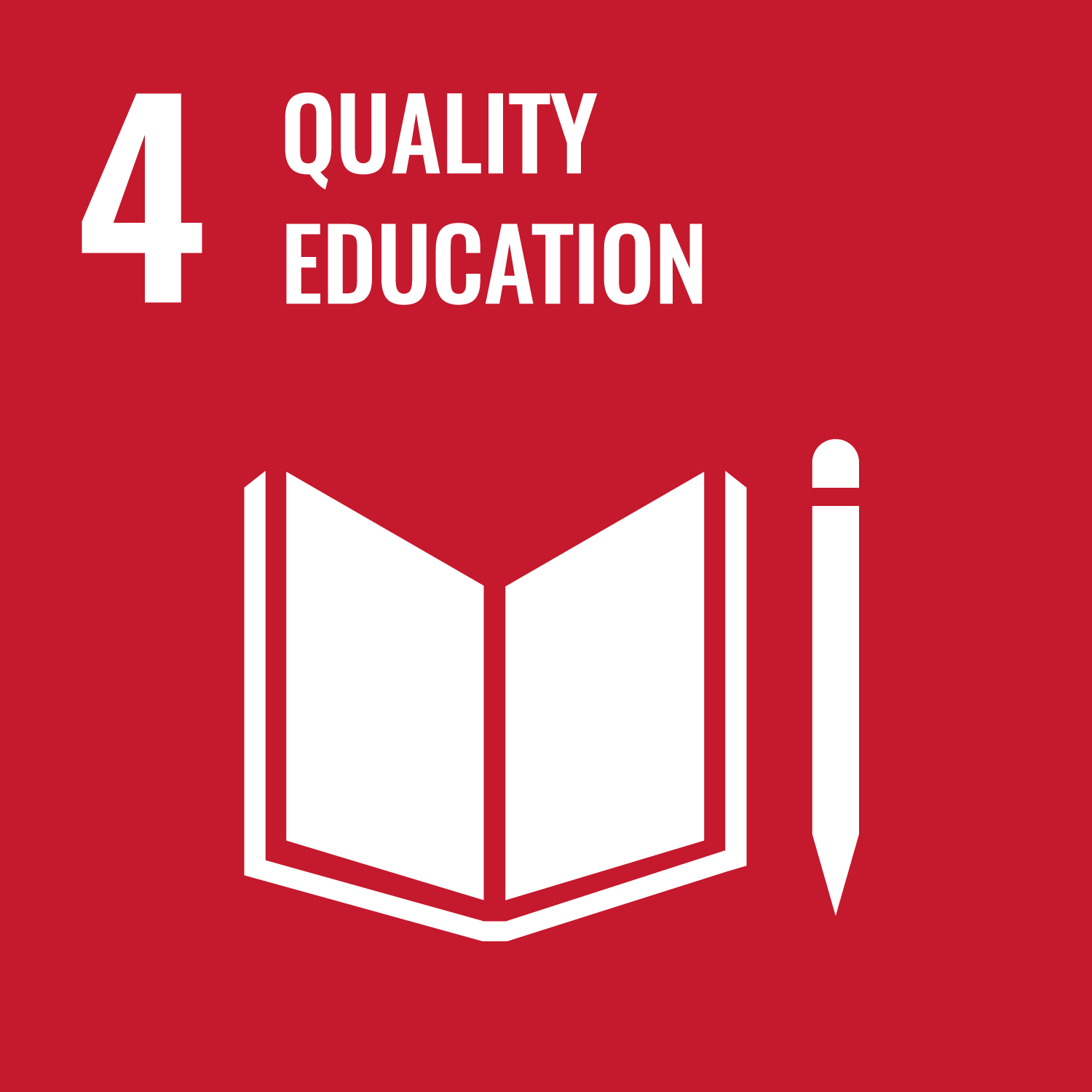
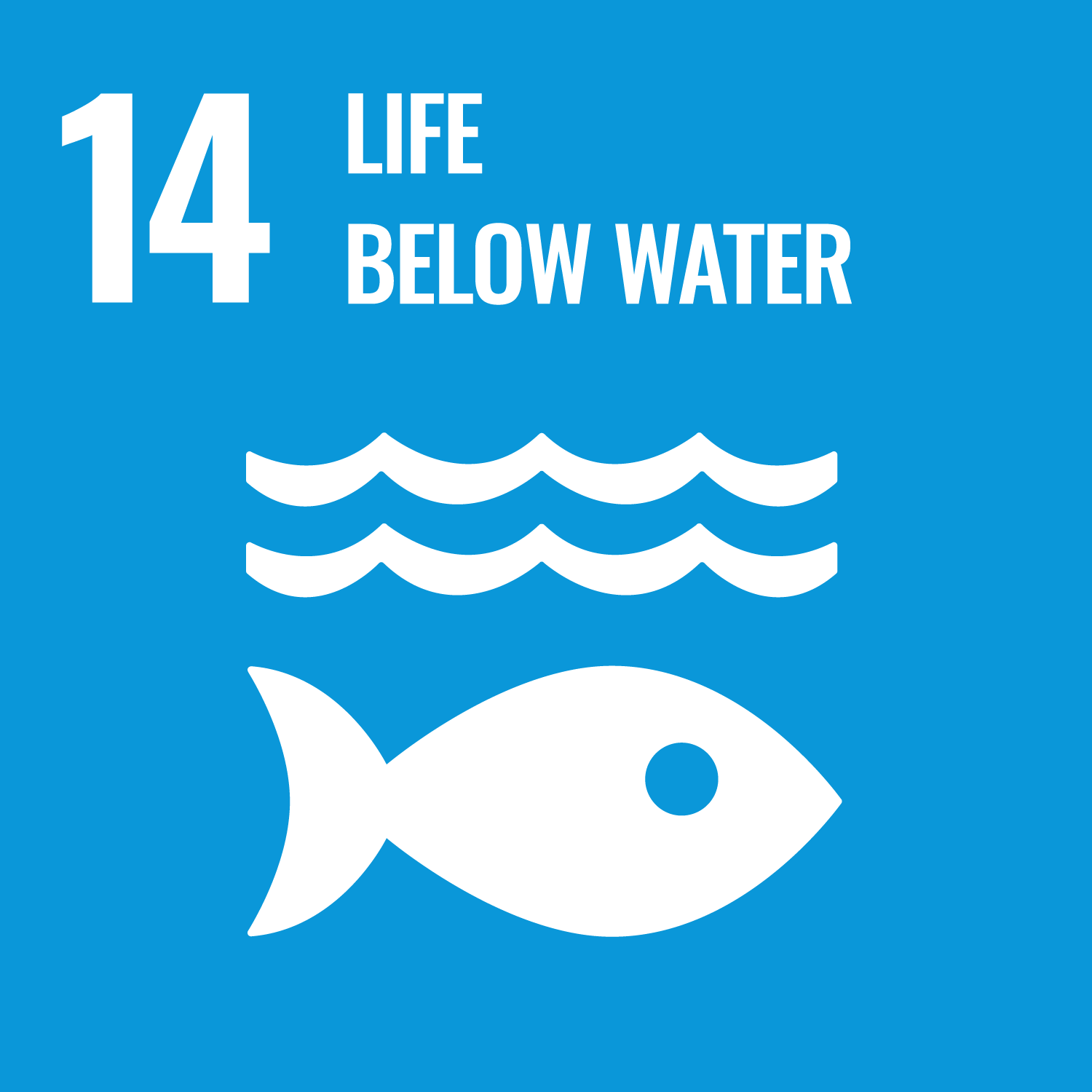
2025.09.10
Fourth-grade students at Popondetta Primary School in Oro Province created “trash art” pieces as part of their environmental studies. By using everyday waste materials, the activity aimed to provide a fun and engaging way to learn about environmental issues while encouraging students to reflect on their own behavior.
This initiative was led by JICA Volunteer Yu Suzuki (Youth Activities), who has been assigned to the school. Suzuki has been actively promoting student-centered learning through mathematics and environmental education, and in this program, he was involved in every stage—from lessons and beach cleanup to artwork production.
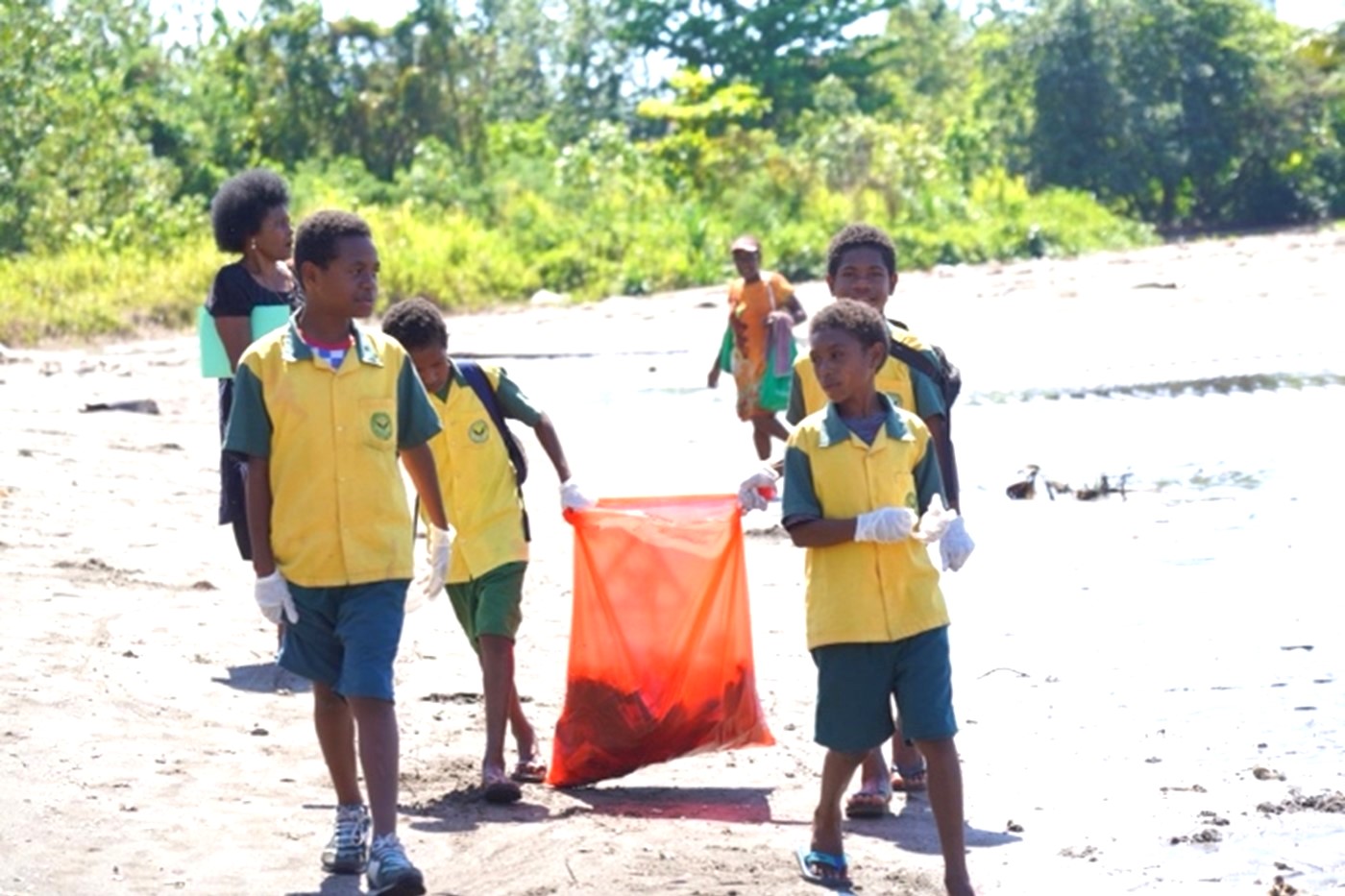
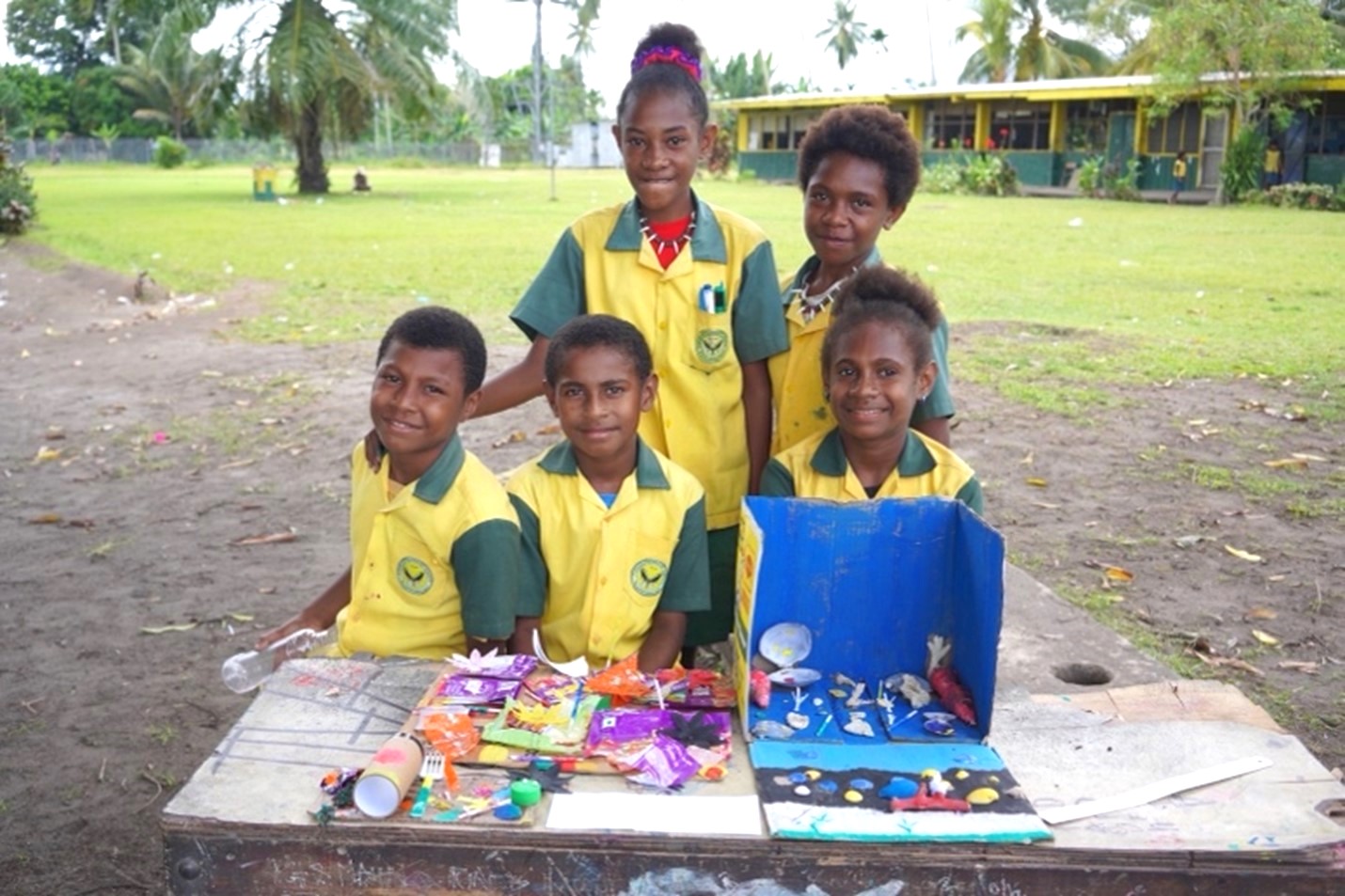
After learning about water pollution and the reality of marine debris, the student took part in a cleanup activity at nearby Oro Bay Beach. They then transformed the collected waste into original art pieces, combining plastic waste, seashells, and seaweed with paints and glue. The colorful and imaginative works will be submitted to a contest in Japan, sharing the creativity of Papua New Guinean students with the wider world.
Suzuki commented, “I could see the students thinking deeply and expressing themselves through trash art. I hope this experience inspires them to change their future behavior.”
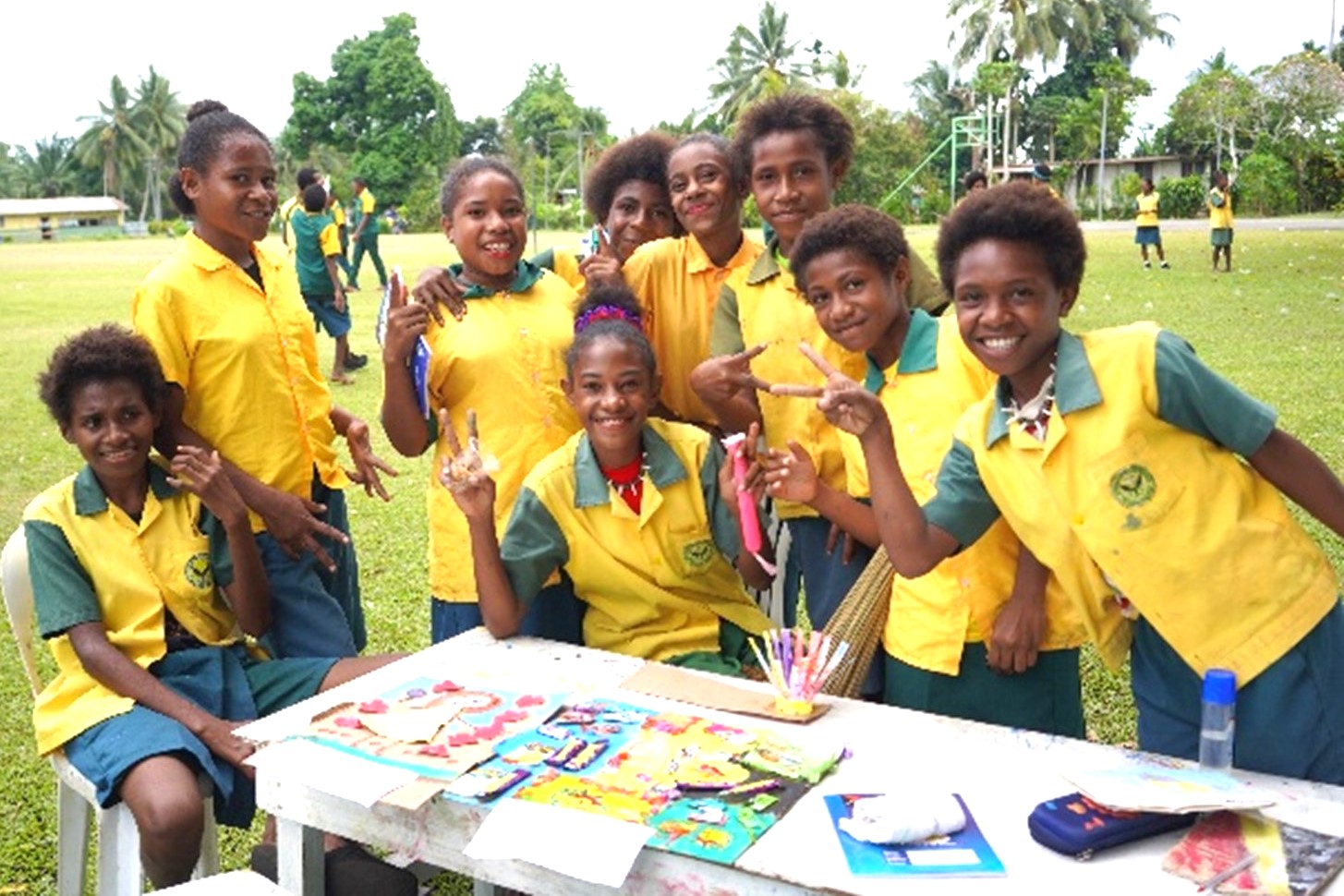
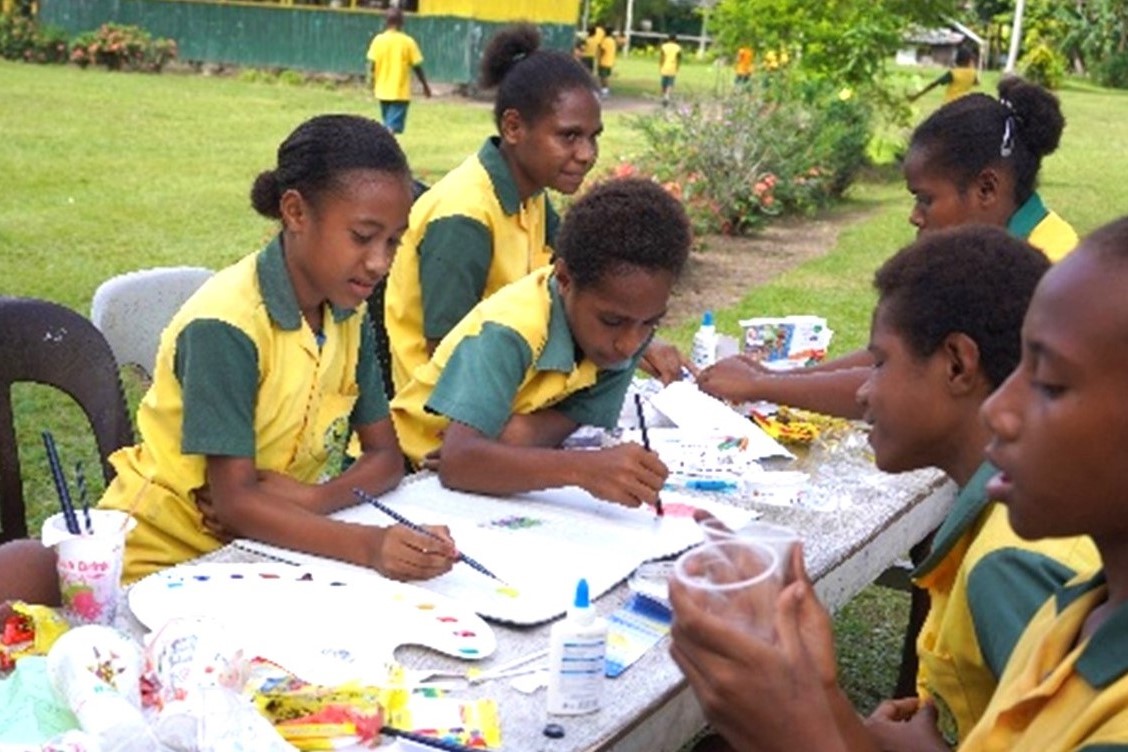
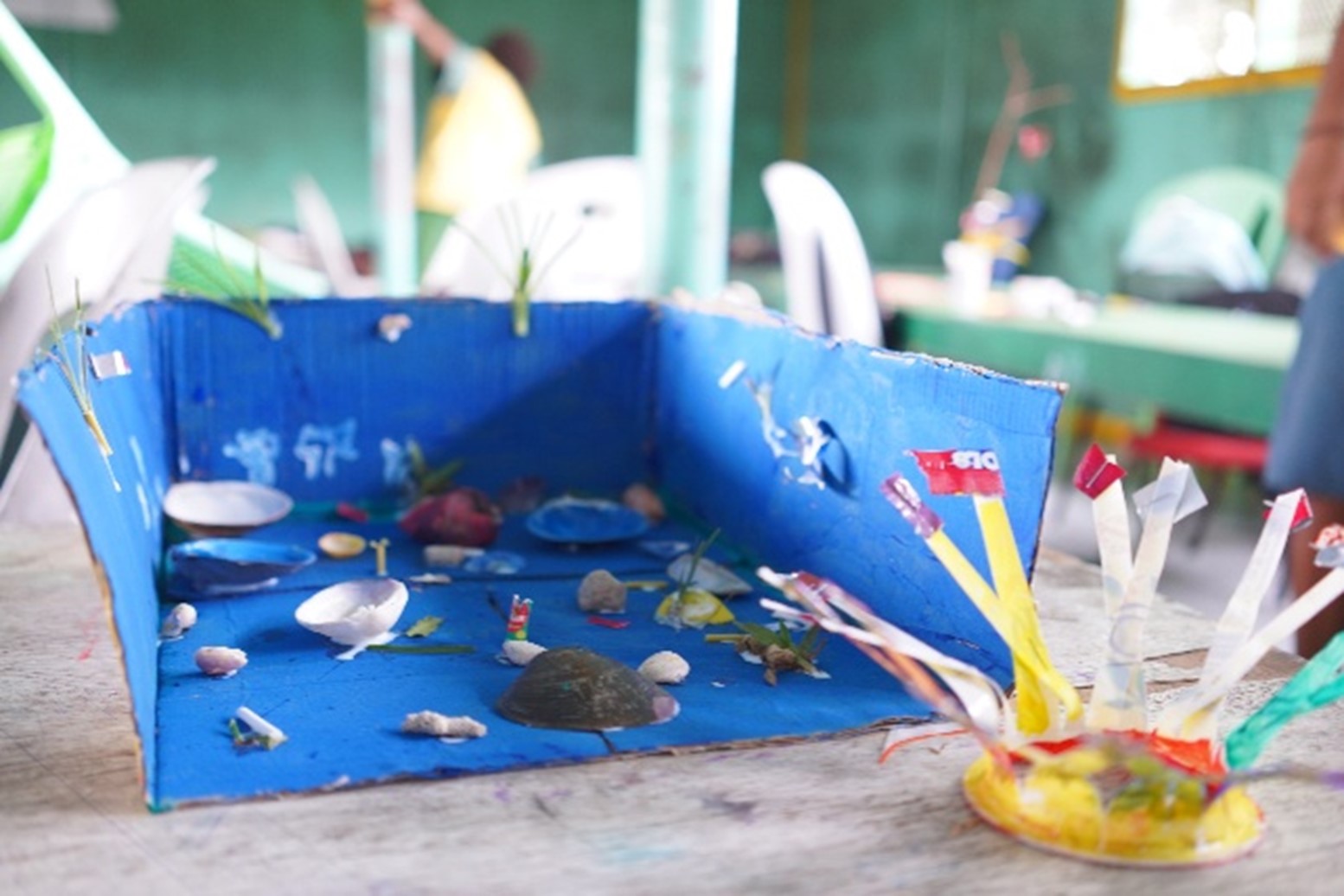
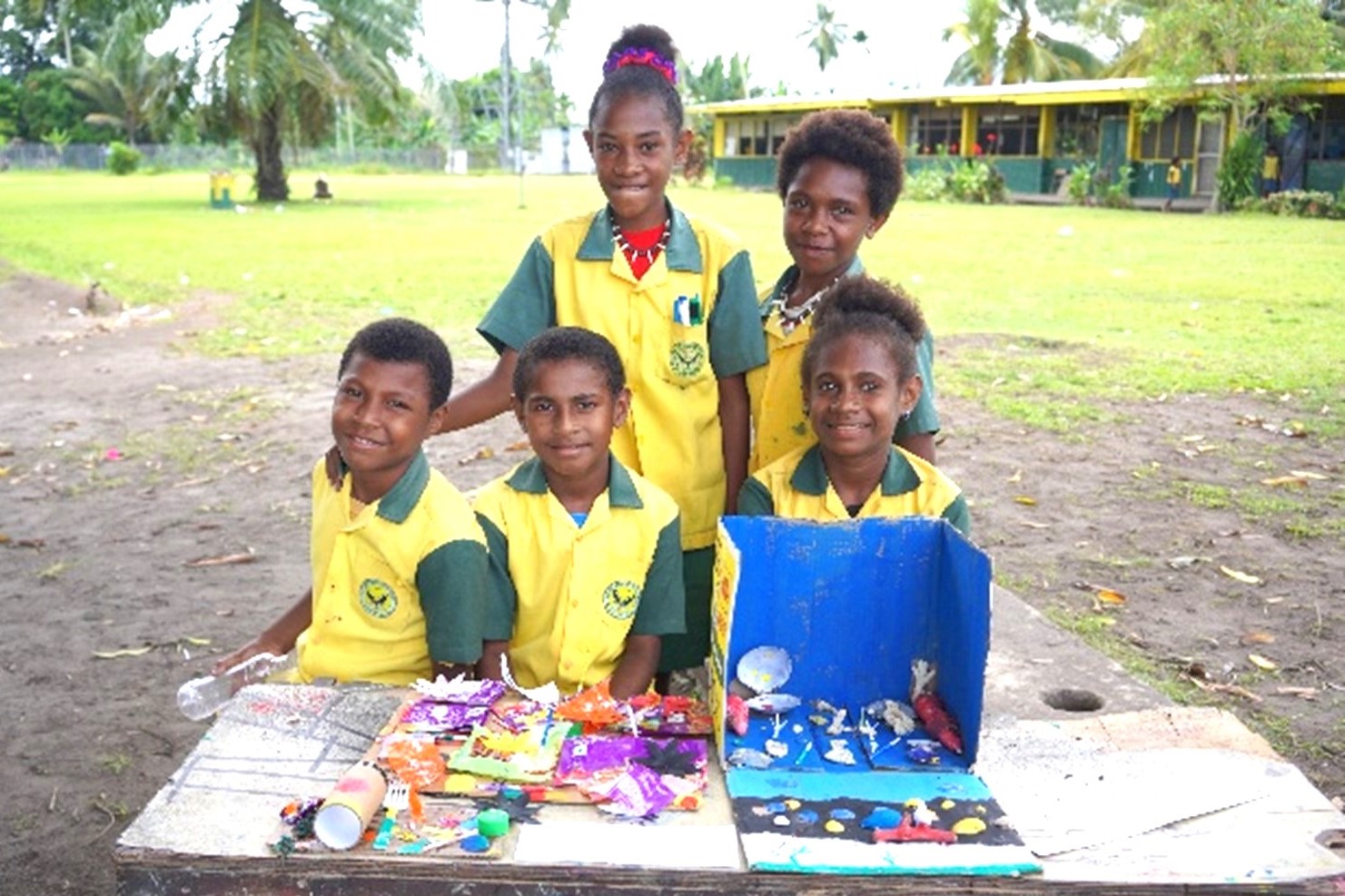
Through these activities, students’ awareness of environmental issues has clearly increased. However, the habit of littering remains deeply rooted, and ongoing efforts are needed to achieve lasting behavioural change. Looking ahead, the program aims to connect Popondetta Primary School with other schools in PNG, creating opportunities for students to share their artworks with peers in different regions. By comparing different types of waste and creative expressions, students are expected to gain new perspectives and broaden their understanding of environmental issues.
This initiative represents an important step in encouraging students to see local environmental challenges as their own and to translate awareness into action.
JICA will continue to work together with schools and local communities to nurture environmental awareness among the next generation and to contribute to building a sustainable society.
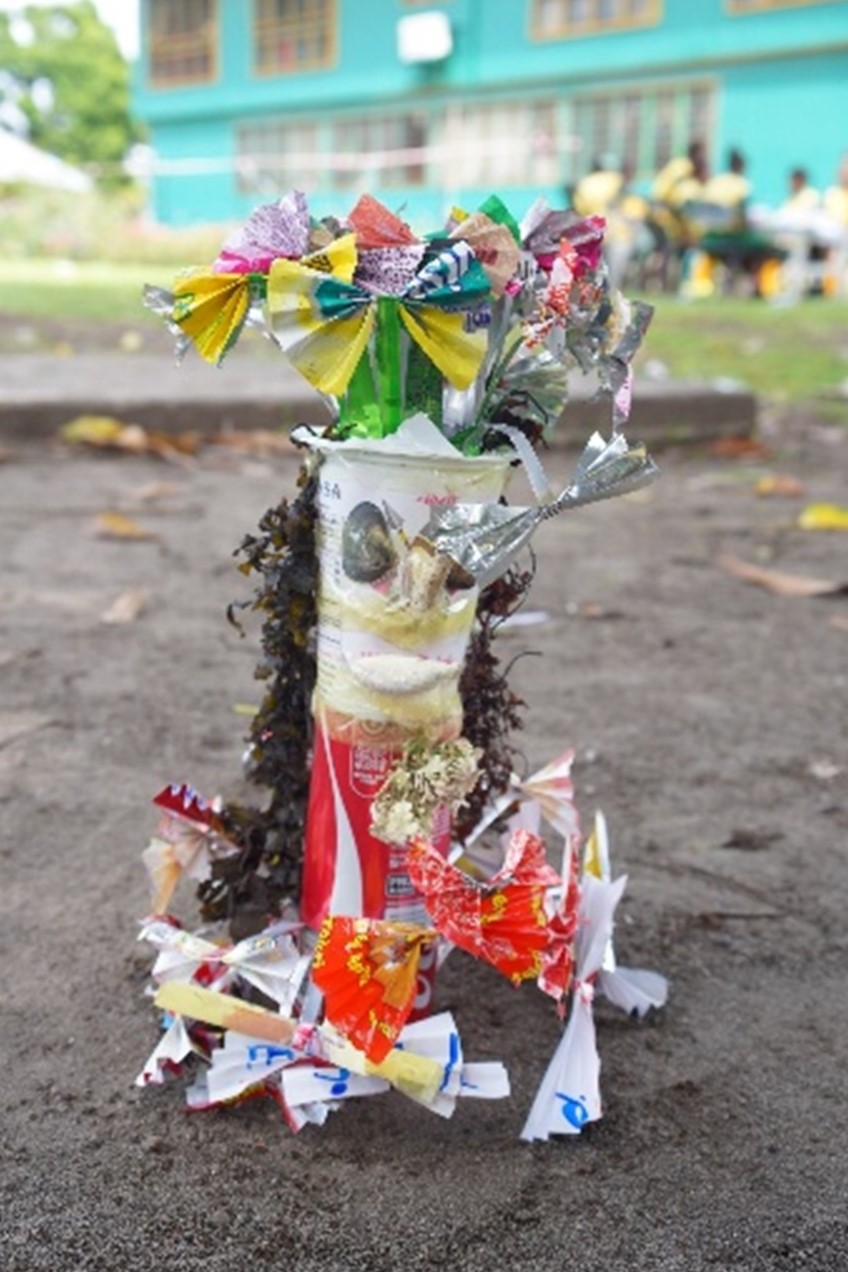
Related Link
・Thinking About the Future of the Ocean Together with Student — Environmental Education Volunteer
・Ms. Priscilla hones her skills in Energy Policy through Knowledge Co-Creation Program
・Voices from the Field to International Organizations — JOCV Present Their Educational Activities —
Please also visit our Facebook for our latest activities and events news
JICA Facebook Page
scroll